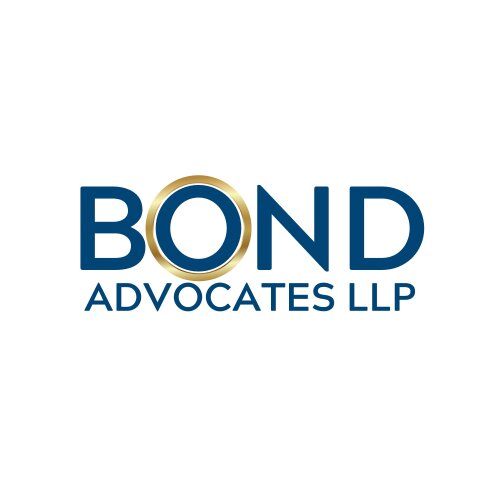Best Disability Lawyers Near You
Share your needs with us, get contacted by law firms.
Free. Takes 2 min.
Or refine your search by selecting a city:
List of the best lawyers
Legal guides written by Smart Legal Solutions:
- Main Legal Measures to Protect Foreign Investment in Thailand
- The importance of the geographical indications for the Thai economy
About Disability Law
Disability law encompasses a range of legal rights and protections tailored for individuals with disabilities. It aims to eliminate discrimination and ensure equal opportunities in various aspects of life, including employment, housing, education, and public accommodations. Key legislation includes the Americans with Disabilities Act (ADA), Rehabilitation Act, Individuals with Disabilities Education Act (IDEA), and Fair Housing Act. These laws provide a framework for accommodating the needs of people with disabilities and upholding their rights to participate fully in society.
Why You May Need a Lawyer
Individuals may seek legal assistance in the realm of disability law due to a variety of situations:
- Experiencing discrimination in the workplace due to a disability.
- Needing assistance with obtaining reasonable accommodations from employers or educational institutions.
- Facing challenges in securing disability benefits such as Social Security Disability Insurance (SSDI) or Supplemental Security Income (SSI).
- Encountering obstacles in accessing public services or facilities.
- Dealing with denial or termination of disability benefits.
- Needing representation in cases of abuse or neglect within care facilities.
Local Laws Overview
Local laws can significantly influence how disability rights are applied and enforced. They often complement federal regulations by providing additional protections or specifying procedures for filing complaints. For example, many states have their own human rights commissions that handle disability discrimination issues. Additionally, local zoning laws may impact accessibility requirements for buildings. It's crucial to understand both the federal and state-specific regulations that govern disability rights in your locality.
Frequently Asked Questions
What qualifies as a disability under the ADA?
The ADA defines a disability as a physical or mental impairment that substantially limits one or more major life activities. This can include conditions like blindness, deafness, diabetes, epilepsy, and more.
How do I request a reasonable accommodation at work?
To request accommodation, inform your employer of your need for adjustment or change at work due to a medical condition. Your employer may request documentation, but they cannot require unnecessary medical information.
Can an employer fire me because of my disability?
No, it's illegal for employers to discriminate against qualified individuals with disabilities. You must be able to perform essential job functions, with or without reasonable accommodation.
What do I do if my child with disabilities isn't getting appropriate services at school?
You may request an Individualized Education Program (IEP) meeting, file a complaint with the state education agency, or seek legal advice to ensure your child receives appropriate educational support.
Am I entitled to disability benefits if I'm temporarily disabled?
Programs like SSDI are for long-term disabilities. For temporary disabilities, check for short-term disability benefits offered by your employer or state programs that provide temporary disability insurance.
Can businesses refuse service to me because I have a service animal?
No, businesses must allow service animals in public areas unless the animal is out of control or not housebroken. A service animal must be trained to perform tasks for a person with a disability.
How can I file a complaint if I'm discriminated against due to my disability?
You can file a complaint with the Equal Employment Opportunity Commission (EEOC) for workplace issues or the U.S. Department of Justice for other discrimination forms. State agencies may also handle complaints.
What protections exist for disabled tenants in housing?
The Fair Housing Act prohibits discrimination based on disability and requires landlords to provide reasonable accommodations and modifications at the tenant’s expense.
Are medical records protected under disability law?
Yes, medical records are protected by privacy laws such as the Health Insurance Portability and Accountability Act (HIPAA), ensuring confidential handling of health information.
What should I do if denied SSDI or SSI benefits?
You have the right to appeal Social Security Administration decisions. It's crucial to act quickly, as there are strict deadlines for filing an appeal. Legal assistance may improve your chances of a successful appeal.
Additional Resources
Here are some valuable resources for those seeking help in disability law:
- Americans with Disabilities Act National Network provides information, guidance, and training on the ADA.
- The Social Security Administration offers resources on SSDI and SSI benefits.
- The National Disability Rights Network advocates for the rights of individuals with disabilities through legal support.
- The U.S. Department of Justice-Civil Rights Division oversees disabilities rights and provides resources and guides on filing complaints.
Next Steps
If you need legal assistance in disability matters, consider the following steps:
- Identify the specific issue you need help with, such as workplace discrimination or denial of benefits.
- Gather all relevant documents and evidence related to your case.
- Research local attorneys specializing in disability law or contact legal aid organizations for assistance.
- Schedule a consultation with a lawyer to discuss your situation and potential legal strategies.
- Consider reaching out to advocacy groups or support networks for additional guidance and support.
Lawzana helps you find the best lawyers and law firms through a curated and pre-screened list of qualified legal professionals. Our platform offers rankings and detailed profiles of attorneys and law firms, allowing you to compare based on practice areas, including Disability, experience, and client feedback.
Each profile includes a description of the firm's areas of practice, client reviews, team members and partners, year of establishment, spoken languages, office locations, contact information, social media presence, and any published articles or resources. Most firms on our platform speak English and are experienced in both local and international legal matters.
Get a quote from top-rated law firms — quickly, securely, and without unnecessary hassle.
Disclaimer:
The information provided on this page is for general informational purposes only and does not constitute legal advice. While we strive to ensure the accuracy and relevance of the content, legal information may change over time, and interpretations of the law can vary. You should always consult with a qualified legal professional for advice specific to your situation.
We disclaim all liability for actions taken or not taken based on the content of this page. If you believe any information is incorrect or outdated, please contact us, and we will review and update it where appropriate.
Browse disability law firms by country
Refine your search by selecting a country.

















